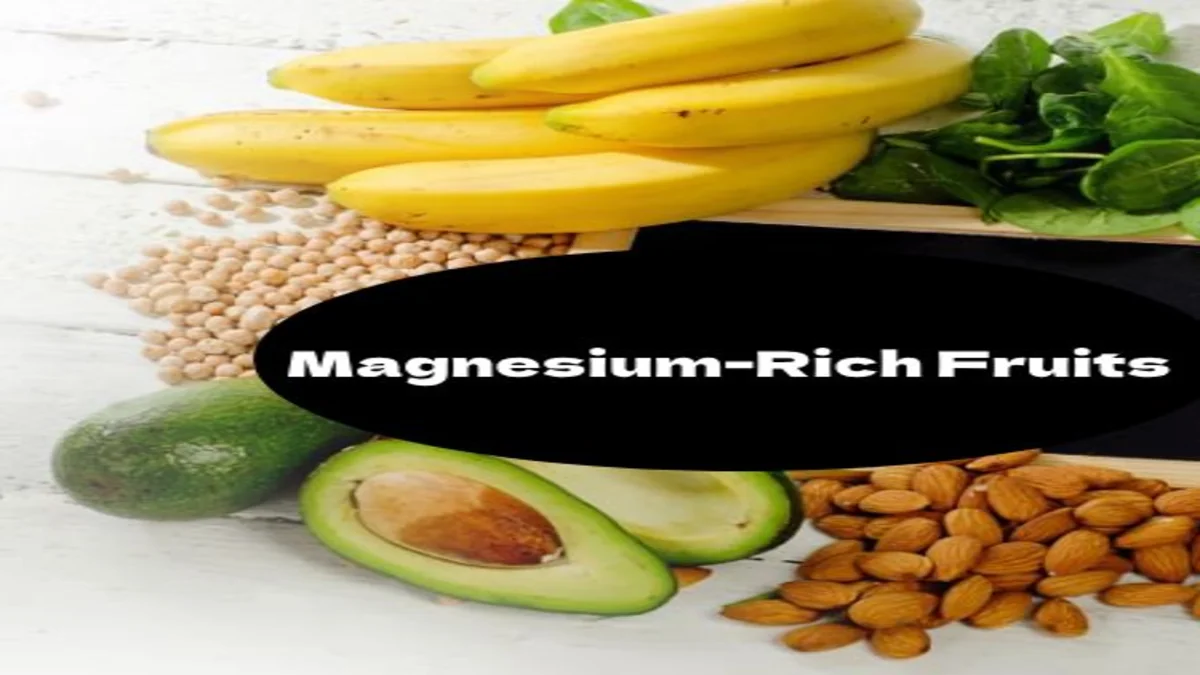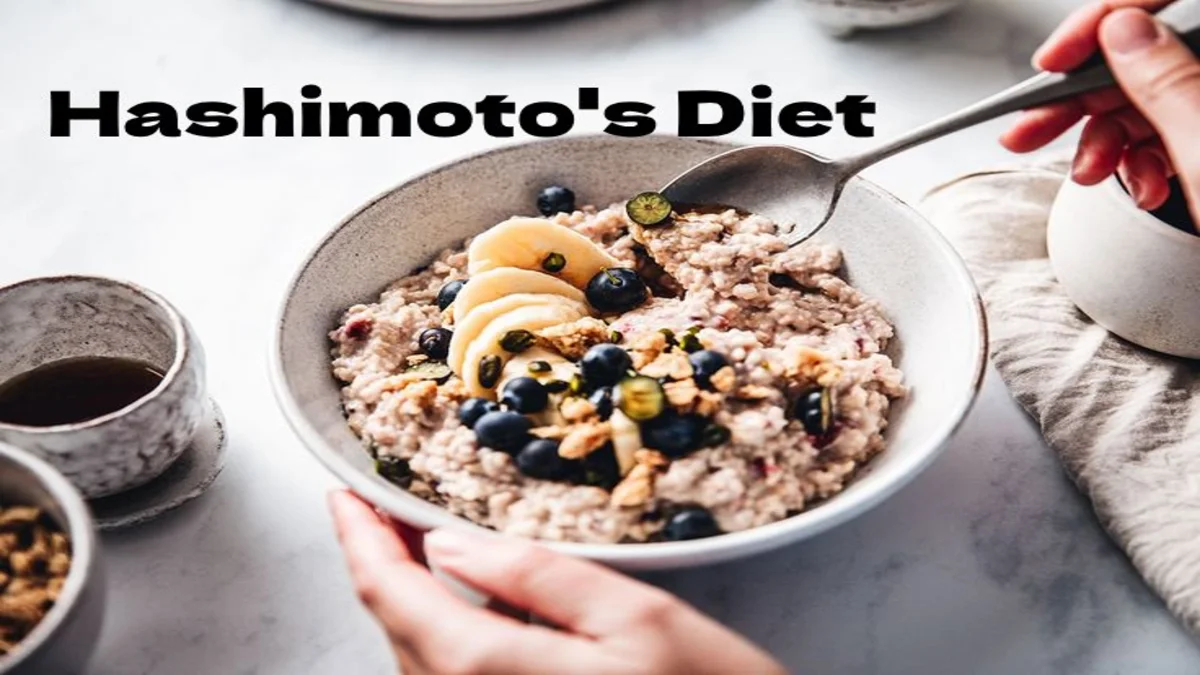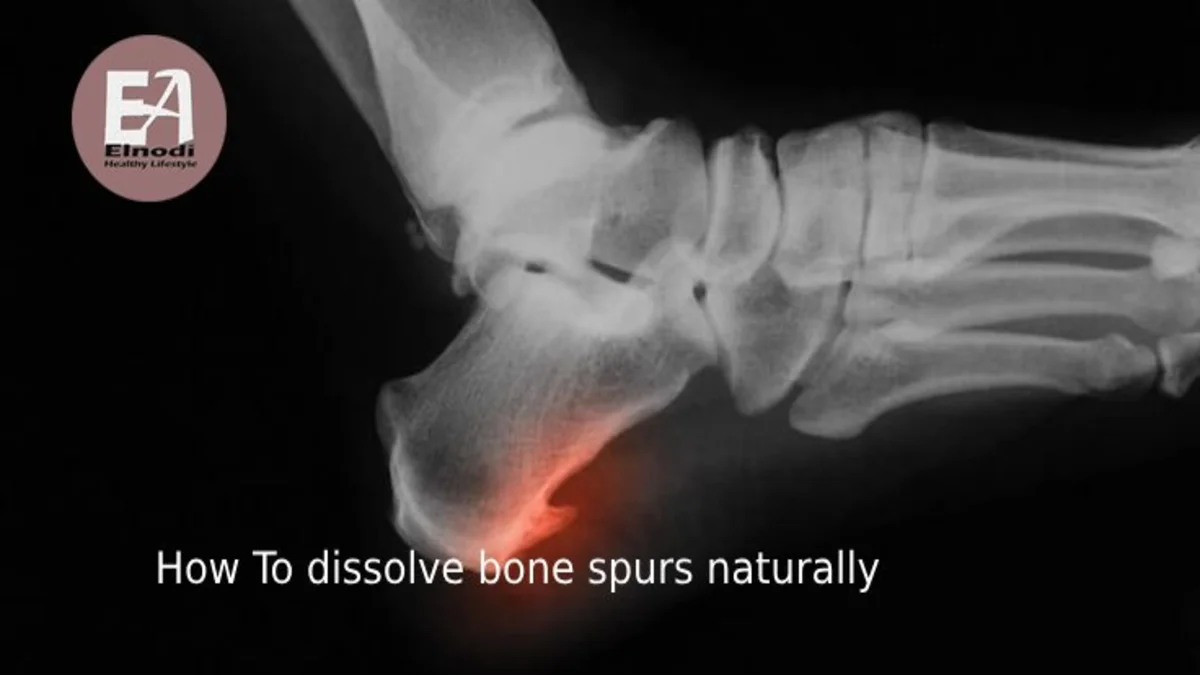Are you looking to boost your magnesium intake through natural sources? Look no further! Incorporating magnesium-rich fruits into your diet is a delicious and nutritious way to ensure you are meeting your daily requirements for this essential mineral.
Magnesium is a critical mineral that plays a key role in over 300 enzymatic reactions in the body, including energy production, muscle function, and nerve transmission. Despite its importance, many people do not consume enough magnesium in their diets, leading to potential health issues.
Why Does Magnesium Need to Be In?
Magnesium is essential to human health. It supports nerves and aids in the maintenance of teeth and bones. Many physiological systems depend on magnesium.
The following are the principal roles it plays in your body:
- More than 300 enzyme reactions are aided by it for our metabolism.
- supports the contraction of muscles and nerve impulses
- aids in the development of teeth and bones
- regulates the concentrations of vital minerals such as sodium, potassium, and calcium
- aids in the production of proteins and energy from food
Good magnesium intake is necessary for both men and women. Adults have different daily needs. Their age, gender, and stage of life all play a role. Typically, men require 400–420 mg daily. Typically, women require 310–320 mg daily. A woman who is pregnant might require an additional 350–360 mg daily.
Magnesium-Rich Fruits
| Magnesium-Rich Fruit | Amount of Magnesium | |
| Bananas | 32 mg | |
| Cherries | 10 mg | |
| Peach | 15.7 mg | |
| Apricots | 15.5 mg | |
| Avocados | 58 mg | |
| Papaya | 33 mg | |
| Blackberries | 29.2 mg |
Benefits of Magnesium-Rich Fruits
- Improved nerve and muscle function: Magnesium facilitates the contraction of muscles and the transmission of nerve impulses. This maintains the health of your neurons and muscles.
- Improved heart health: It lowers the risk of heart disease, maintains normal blood pressure, and helps regulate your heart rhythm.
- Stronger teeth and bones: Magnesium aids in the body’s absorption of calcium. It is essential for maintaining the condition of your teeth and thick bones.
- Magnesium promotes healthy digestion. It might be beneficial for digestive problems like constipation, indigestion, and gut diseases.
- Enhanced immunity to disease: Magnesium supports a healthy immune system. It supports numerous enzymes found in immune cells.
Magnesium Deficiency
Magnesium deficiency, also known as hypomagnesemia, occurs when the body doesn’t have enough magnesium to function properly. Magnesium is an essential mineral involved in over 300 biochemical reactions in the body, including energy production, muscle and nerve function, blood sugar regulation, and bone health.
Several factors can contribute to magnesium deficiency:
Inadequate Intake: If your diet lacks magnesium-rich foods, such as nuts, seeds, whole grains, and leafy green vegetables, you may become deficient in magnesium.
Medical Conditions: Certain medical conditions can impair magnesium absorption or increase magnesium loss through urine or the digestive tract. These include gastrointestinal diseases (e.g., Crohn’s disease, celiac disease), kidney disorders, diabetes, and alcoholism.
Medications: Some medications can interfere with magnesium absorption or increase urinary excretion of magnesium. Examples include diuretics, proton pump inhibitors (PPIs), and certain antibiotics.
Age: Older adults are at higher risk of magnesium deficiency due to decreased absorption and increased excretion of magnesium by the kidneys.
Excessive Sweating: People who engage in intense physical activity or live in hot climates may lose significant amounts of magnesium through sweat.
Symptoms of magnesium deficiency can vary but may include:
- Muscle cramps and spasms
- Fatigue and weakness
- Nausea and vomiting
- Loss of appetite
- Numbness and tingling
- Abnormal heart rhythms
- Personality changes
- Seizures (in severe cases)
If you suspect you have a magnesium deficiency, it’s essential to consult with a healthcare professional. They can perform tests to assess your magnesium levels and provide appropriate treatment, which may include dietary changes, supplements, or addressing underlying medical conditions.
How Can You Include Fruits High in Magnesium in Your Diet?
It’s simple to include extra fruits high in magnesium in your regular meals. Here are some pointers.
When making breakfast, cut up bananas and add them to your cereal, yogurt, or oatmeal. Another simple and quick snack option is a banana.
Add some fresh cherries to your ice cream, cottage cheese, or yogurt. Or, you might puree them into a delicious smoothie.
Chop the apricots and peaches into tiny pieces. For lunch, throw them in a salad with spinach, nuts, and dressing or mix them into a fruit salad.
For an antioxidant boost, try blackberries on their own, over Greek yogurt, or blended into a fresh smoothie.
How to improve magnesium absorption?
Improving magnesium absorption can help ensure your body gets the most out of the magnesium-rich foods you consume. Here are some strategies to enhance magnesium absorption:
- Consume Magnesium-Rich Foods: Incorporate magnesium-rich foods into your diet, such as leafy green vegetables (spinach, kale), nuts and seeds (almonds, pumpkin seeds), legumes (beans, lentils), whole grains (brown rice, quinoa), and fruits (bananas, avocados).
- Pair with Vitamin D: Vitamin D is important for magnesium absorption. Make sure you’re getting enough vitamin D through sun exposure, fortified foods, or supplements.
- Balance Calcium Intake: Calcium competes with magnesium for absorption, so it’s essential to maintain a balance between calcium and magnesium intake. Aim for a calcium-to-magnesium ratio of around 2:1 in your diet.
- Limit Phytic Acid: Phytic acid, found in grains, nuts, seeds, and legumes, can bind to magnesium and inhibit its absorption. Soaking, sprouting, or fermenting these foods can reduce phytic acid content and improve magnesium absorption.
- Increase Stomach Acid: Adequate stomach acid is necessary for magnesium absorption. If you have low stomach acid (hypochlorhydria), consider strategies to improve digestion, such as consuming apple cider vinegar before meals or taking digestive enzyme supplements.
- Avoid Excess Alcohol and Caffeine: Alcohol and caffeine can increase urinary excretion of magnesium, leading to depletion. Limit your intake of alcoholic beverages and caffeinated drinks.
- Maintain Gut Health: A healthy gut microbiome is important for optimal nutrient absorption, including magnesium. Consume probiotic-rich foods (like yogurt, kefir, sauerkraut) and fiber to support gut health.
- Consider Magnesium Supplements: If you have difficulty meeting your magnesium needs through diet alone or have a medical condition that affects magnesium absorption, consider taking magnesium supplements. Choose high-quality supplements such as magnesium citrate, magnesium glycinate, or magnesium malate, which are well-absorbed forms of magnesium.
- Consult with a Healthcare Professional: If you have concerns about magnesium absorption or deficiency, consult with a healthcare professional. They can provide personalized recommendations based on your health status and dietary habits.
By incorporating these strategies into your lifestyle, you can optimize magnesium absorption and support overall health and well-being.
Risk of Consuming Too Much Magnesium
Similar to low magnesium levels, high magnesium levels can also be detrimental to your health. Normally, the kidneys eliminate excess magnesium from the body. However, taking too many magnesium supplements can lead to serious health problems like kidney failure, hypotension, irregular heartbeat, and even diarrhea and stomach cramps.
Consult a healthcare professional before beginning any kind of supplementation. This is particularly crucial if you take any medications that may interact with magnesium or if you have any health issues.
Conclusion
We need magnesium for good health. It promotes the health of bones, energy production, and nerve and muscle function. A lack of magnesium in your diet can raise your risk of several illnesses.
Consume a range of meals high in magnesium daily to maintain optimal levels of this mineral. Bananas, apricots, cherries, blackberries, and peaches are fruits high in magnesium; find creative ways to incorporate them into your diet. Additionally, be mindful of the variables that may impact your body’s absorption of magnesium and take action to maximize your consumption.
Never forget to consult a healthcare professional before considering taking magnesium supplements. This is especially important if you take any medications that may interact with magnesium or if you have any health issues.
FAQs
Which fruit has high magnesium?
How can I get 100% magnesium daily?
What foods block magnesium absorption?
What drinks are high in magnesium?
Green Tea.
Almond Milk.
Pumpkin Seed Milk.
Spinach and Kale Smoothie.
Coconut Water.
Banana and Peanut Butter Shake.
Beetroot and Carrot Juice.
References
- http://www.ncbi.nlm.nih.gov/pmc/articles/PMC1855626
- https://www.ncbi.nlm.nih.gov/pmc/articles/PMC5637834
- https://www.ncbi.nlm.nih.gov/pmc/articles/PMC2738337
- https://pubmed.ncbi.nlm.nih.gov/18469287
- https://www.heart.org/en/healthy-living/healthy-eating/eat-smart/nutrition-basics/whole-grains-refined-grains-and-dietary-fiber
- https://www.ncbi.nlm.nih.gov/pmc/articles/PMC7761840
- https://www.ncbi.nlm.nih.gov/pmc/articles/PMC5465250
Disclaimer: The information provided here is for educational/awareness purposes only and is not intended to be a substitute for medical treatment by a healthcare professional and should not be relied upon to diagnose or treat any medical condition. The reader should consult a registered medical practitioner to determine the appropriateness of the information before consuming any medication. Elnodi does not provide any guarantee or warranty (express or implied) regarding the accuracy, adequacy, completeness, legality, reliability, or usefulness of the information; and disclaims any liability arising thereof.





